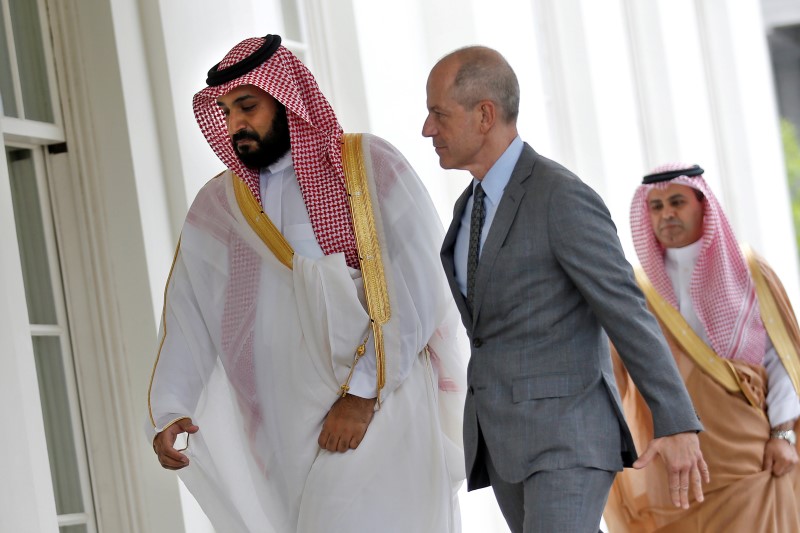By Timothy Gardner and Roberta Rampton
WASHINGTON (Reuters) - President Barack Obama and the deputy crown prince of Saudi Arabia on Friday discussed ways to support Iraqis in their fight against Islamic State militants and the importance of a political transition in war-torn Syria, the White House said.
Obama met with Mohammed bin Salman in the Oval office for about an hour. The deputy crown prince is visiting the United States to repair frayed relations and to promote a plan, known as Vision 2030, to slash the kingdom's dependence on oil exports.
"The President expressed appreciation for Saudi Arabia's contributions to the campaign against ISIL," the White House said, using an acronym for the Islamic State group.
The two talked about steps to support Iraqis "including increased Gulf support to fund urgent humanitarian and stabilization needs," the White House said.
U.S. officials have expressed unease about the Saudi-led campaign against Houthi rebels in Yemen, which according to the United Nations and human rights groups has resulted in large numbers of civilian casualties.
Saudi Arabia is worried about closer relations between the United States and Iran, Riyadh's arch enemy, after a 2015 nuclear deal.
Obama welcomed Saudi Arabia's commitment to a political settlement of the Yemen conflict and support by the Gulf Cooperation Council, of which the kingdom is a member, to address humanitarian needs and rebuild the country, the White House said.
On Syria, Obama and the prince talked about the importance of supporting a political transition away from President Bashar al-Assad, the White House said. The United States is working with international partners on what it calls a Syrian-led transition process facilitated by the United Nations, but so far there has been little progress.
Over 50 diplomats at the U.S. State Department signed a memo, leaked on Thursday, that was critical of the Obama administration's Syria policy and called for targeted military strikes against Assad's government.
Asked about the memo, Saudi Arabia's Foreign Minister Adel al-Jubeir, also in Washington, told reporters the kingdom had been arguing for a "more robust intervention" including airstrikes, a no-fly zone, and a no-drive zone, from the beginning of the five-year civil war.
Obama does not see a military solution to the crisis in Syria, White House spokeswoman Jen Friedman said.

Both Washington and Riyadh are anticipating the release of classified pages of a U.S. report into the Sept. 11, 2001 attacks, that some U.S. lawmakers have alleged link Saudi government officials to the attacks. Jubeir said investigations show that the allegations "are not correct and they don't hold."